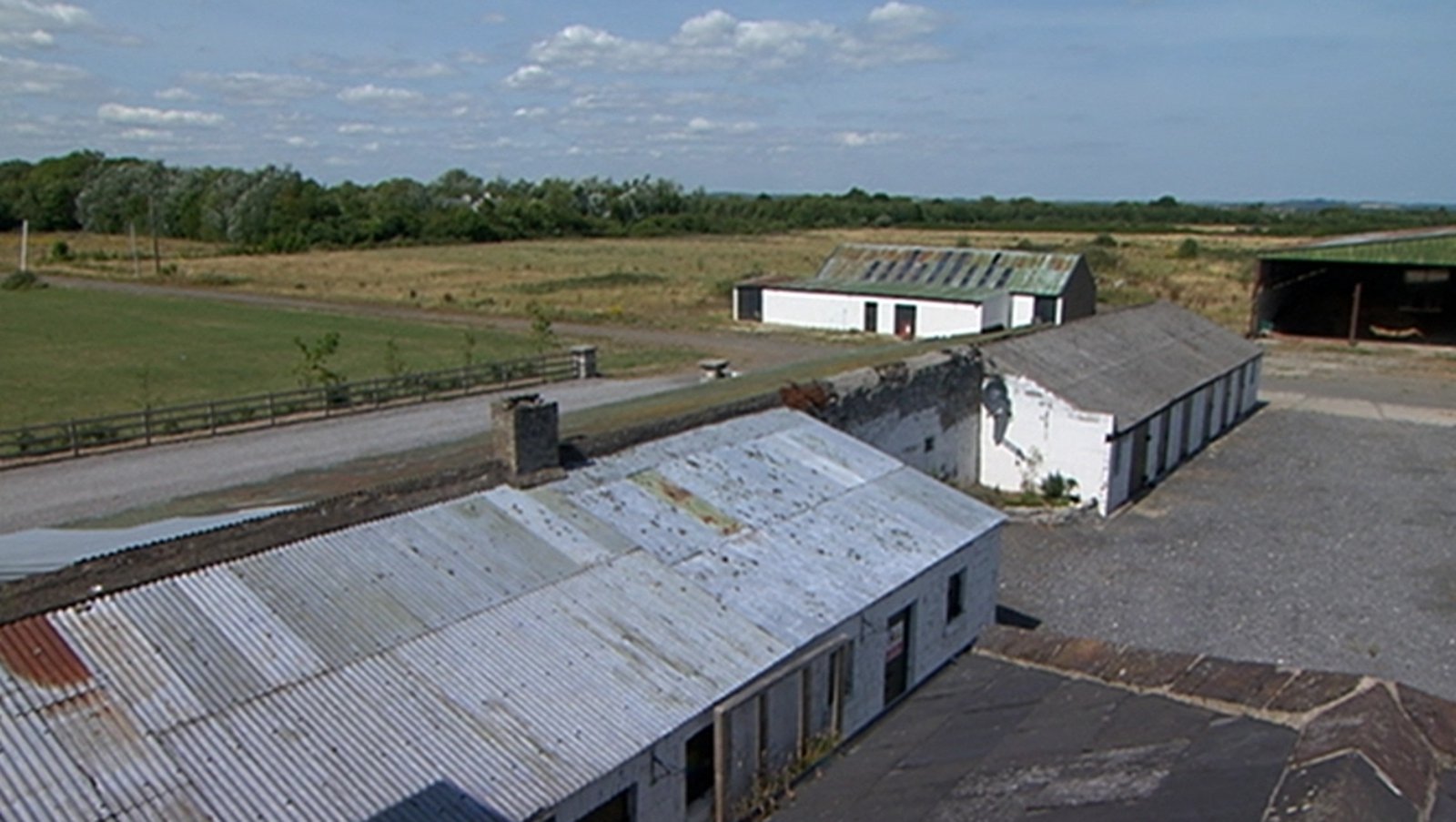The Government is considering providing large-scale tented accommodation for asylum seekers at Thornton Hall in north Dublin.
The site, which encompasses more than 160 acres, could take up to four weeks to prepare.
However, some within the coalition are optimistic that preparatory work could be completed sooner.
The tents would be pitched in a part of the site that is already “serviced”. This includes toilets, sanitation facilities, along with kitchens and eating areas.
There is a strong view that now is time to utilise this site which has been described as a “white elephant”.
Thornton Hall was purchased by the State in 2004 at a cost of almost €30 million.
It was planned at the time to build a prison on the site which also has a well-maintained late 19th century period property.
The Government is examining too if up to 600 free beds, previously used by Ukrainians, could now accommodate International Protection applicants.
One senior figure in the coalition said there is a determination to use this free space for asylum seekers.
It comes as more than 90 tents were pitched along the Grand Canal in Dublin this morning, between Baggot Street Bridge and Wilton Place.
The encampment is mostly asylum seekers who have been given tents by agencies due to an absence of State accommodation.
They were prevented from putting up tents closer to Mount Street, where the International Protection Accommodation Services office is located, due to barriers being erected.
More than 100 tents were removed from that area, earlier this month, in a multi-agency operation.
Many of the people living in the tents did not want to talk to the media this morning.
Local residents’ groups have expressed concerns at the number of asylum seekers sleeping rough along the canal.

In recent weeks, the Taoiseach insisted that the creation of such encampments cannot be allowed to happen.
Mr Harris said this morning that he wants to continue with compassion regarding international protection applications, but he said there must also be “an injection of common sense” with regard to the application of the rules.
His comments come as the number of people seeking asylum in Ireland continues to rise.
Mr Harris said the bigger issue was how international agreements are applied and enforced, adding that he wants to know if Ireland’s rules are in line with other European countries.
“I want to know are we out of kilter with other European countries, I want to know are we applying the rules. I want to know if our rules around work, our rules around accommodation, are in line with other European countries,” he said.
We need your consent to load this comcast-player contentWe use comcast-player to manage extra content that can set cookies on your device and collect data about your activity. Please review their details and accept them to load the content.Manage Preferences
Mr Harris defended the Government’s response to date, but admitted “a lot more work” needs to be done.
The Taoiseach said the focus was now on building a more sustainable system as he said the current one planned for 3,500 arrivals a year. “We are in a very different place now,” he added.
Mr Harris said there continues to be an issue with tents emerging but it is “very different” to what happened on Mount Street over recent months.
He said it was “appalling” and it came very close to a public health emergency being declared.
The current tented encampment on the Grand Canal in Dublin does not differ from what existed on Lr Mount Street, Safety Net medical charity spokesperson Dr Fiona O’Reilly said.
Speaking on RTÉ’s News at One, Dr O’Reilly said: “There is no security, no registration of people, no water and sanitation … no basic provisions, no ability to follow up people’s basic needs and healthcare.”
Dr O’Reilly said the men in the encampment are “basically healthy” but the environment can make them unhealthy by “exacerbating” pre-existing medical conditions, and can also “create” conditions, like colds, coughs, respiratory problems, musculoskeletal problems, skin conditions – contributing to “poorer health”, as well as affecting their mental health.
Last night, the Fianna Fáil parliamentary party heard that there could be between 26,000 and 30,000 asylum applications this year.
During a lengthy discussion on migration, alarm is reported to have been expressed as Minister for Finance Michael McGrath told a private meeting at Leinster House that the issue had “exploded” and the Government’s management of the issue needed to improve.
It is understood that several of the speakers from the floor expressed concern about how the Government is communicating its message.
Other ministers attending the meeting were Minister for Housing Darragh O’Brien and Minister for Health Stephen Donnelly.
It is understood Deputy James O’Connor raised concerns about the failure to provide wrap-around supports to communities and towns that have accepted large numbers of migrants.
During the meeting, it is understood that Mr McGrath said migration had “exploded as a political issue”.
He told his party’s TDs, senators and MEPs that public concern over the issue was very much mainstream, and that improvements were needed at Government level.
It is believed the minister identified two areas where he felt improvements were required – communications with the public and in how the actual system is being managed.
He said he believed the number of asylum seekers that could enter Ireland this year is 25,000-30,000, given 600 applicants had recently arrived in a single week.
Additional reporting Karen Creed, Paul Cunningham

